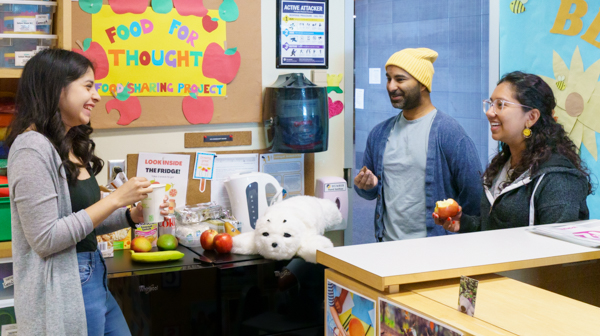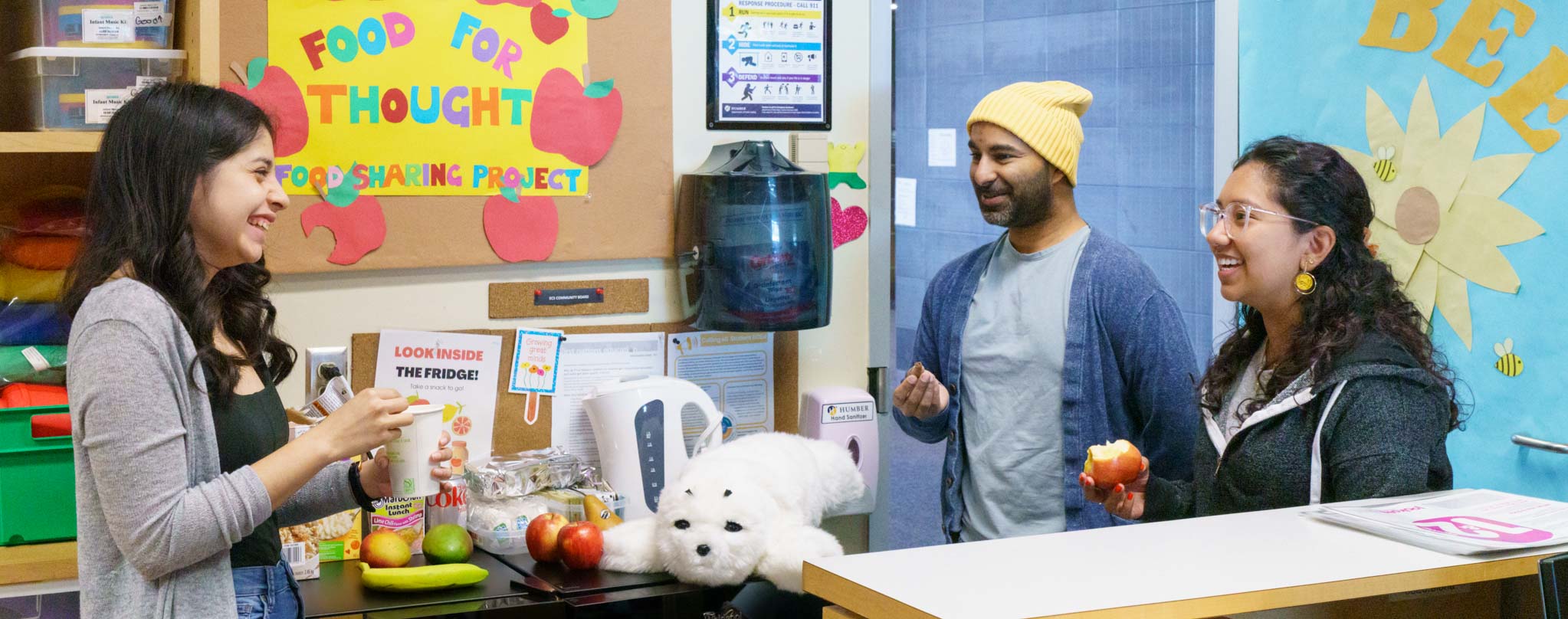

It started with a conversation with two first-year students in residence about how expensive fruit was.
Soon, requests started coming to replace the chocolate in the Early Childhood Studies Program (ECS) resource room with fruit.
This is when Dr. Nikki Martyn, Program Head of the ECS Program at Guelph-Humber thought something was different.
“After this happened, I started thinking- this is an issue when you have 18 and 20-year-olds asking for fruit instead of chocolate. That is meaningful,” Dr. Martyn explained.
After giving it some thought, she worked with colleagues to figure out how to incorporate food into the curriculum and how to do it in a practical way.
At almost the same time an alumni reached out about making a donation that would be impactful on campus.
It was through all these circumstances coming together that the Food for Thought sharing program was born.
“It was quite serendipitous, the whole thing. What I love about this idea is that came from a need from the students, it developed through faculty to be able to solve the problem and with funding from alumni - so full circle,” Dr. Martyn said. “That cycle of the ECS community was astounding.”
The ECS room already had a fridge, so with the donation from the alumnus, who wished to remain anonymous ,the first stock of fruit and granola bars was made available.
Six months later, you can find yogurt, granola bars, plums, oranges, and other assorted snacks in the two fridges in Room 319 for any student who needs it.
The resource room has gone from being a hub for the ECS program to being a university space for students from every program.
For Linda Garcia Contreras, who graduated this week from the ECS program, there have been a few surprises since the start of the program.
“It’s been surprising the number of students that come in when they need a little pick me up before class,” Contreras said.
The message they want to convey is that the food is there for the taking- they are not tracking who takes what and when.
“When students pick up food, they say sorry. We always say – don’t say sorry it’s something you need. Don’t apologize. Just take what you need,” Contreras said.
The objective of the program is to ensure that students are comfortable coming in and out of the room whenever they need to.
“We want students to know that they don’t have to ask. They can come in and it’s available to everyone. Nobody is being singled out or segregated,” Contreras said.
The steady stream of food donations coming into the ECS resource room also came as a surprise to Dr. Martyn and Contreras. Despite it not being obligatory, some who have taken food have returned to replenish supplies.
“What’s interesting to me is everyone just took what they needed when they needed it. No stigma. But then they came back with food donations of their own. It became cyclical it was staff, it wasn’t just our community,” Dr. Martyn said. “Our fridges were full of fruit and cheese.”
Thanks to the popularity of the program, the hope is to expand it across the institution in the coming academic year.

